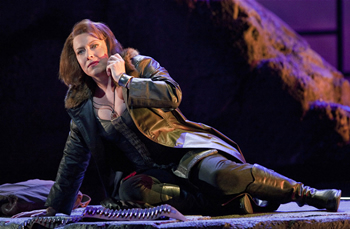Rolled out during the fall of 2018, JazzArts Charlotte‘s new Premiere Thursdays augments its firmly-established Jazz Room series. Jazz Room began its 14th season in October at the Stage Door Theater, packing four sessions into Friday and Saturday nights. Premiere Thursdays began its second season at that same venue with “Gypsy Jazz: Andy Page Plays Django Reinhardt,” logging two sets – the second one, at 8 pm, sold-out – during its one-night stand. Unlike other subjects of Jazz Room homages, say pianist Thelonious Monk or saxophonist John Coltrane, Reinhardt’s guitar exploits are often synonymous with a group and a genre, namely the Quintette du Hot Club de France and Gypsy Jazz. So, it might have been a little surprising to see four musicians taking the bandstand for the 6pm performance that I attended. But with violinist Steve Trismen filling the great Stéphane Grapelli’s slot in the Quintette and a second guitarist, Leo Johnson, available to strum rhythm behind the leader, I was confident that the basic Hot Club sound would be preserved. Page was joined by his twin brother, Zack Page, playing the upright bass, while vocalist Lauren Hayworth was waiting in the wings.
With the second guitar strumming, bolstered by pizzicatos from the bass and even – at times – the violin, Page’s quartet had a surprisingly driving sound from the moment the leader launched into his opening tune, “Rose Room.” They were very much on-the-beat in a way that combos with drums and piano rarely are, and with plenty of space accorded to the soloists – three choruses each for Andy Page and Trismen, and one for Johnson – we quickly became acquainted with their swinging capabilities. Page’s asymmetrical guitar had the look of instruments Django was photographed playing, and his sound had a similar twang, though Page had a greater tendency to indulge in slides at the end of his phrases. All in all, both in the configuration of the group and in the leader’s style, we were getting the flavor of the Hot Club quintet with individualistic departures rather than merely a slavish imitation.
In the ensuing “Douce Ambiance,” a more complex arrangement that divided the closing chorus among multiple soloists, Page demonstrated his readiness to share the heavy lifting with his bandmates. After Page played the melody, Trismen drew the most solo space and Johnson, with a guitar as Django-like as Page’s, proved to be just as schooled in the rudiments of Reinhardt’s style, dwelling more constantly up in the treble with a tinnier sound. At a slower tempo, “Troublant Bolero,” covered one of Reinhardt’s most amazing solos. Though “Bolero” was quite differently arranged from Reinhardt’s recording, with Page playing the melody instead of his violinist, similar harmonics adorned Page’s concluding coda. “Swing 39” expressly featured Johnson, with a half-chorus set aside for Zack Page to solo on.
The next nine selections diverged from the opening cluster. Between two stints by vocalist Hayworth, joining the band for a nice mix of French and American tunes, Johnson switched out his guitar for a clarinet and fronted the quartet for a couple of tunes, “Tears” and “Belleville.” Before taking a chorus of his own on “Tears,” Trismen heightened the impact of Johnson’s fine solo with his backup work. At a quicker pace, Trismen and Johnson split four choruses improvising on “Bellville,” with simpler statements of the melody by Johnson framing their duel.
Reinhardt hardly ever recorded with vocalists, so it was interesting to see how Hayworth would mesh with the combo and what tunes she would select. The first three – “Ménilmontant,” “J’Attendrai,” and “Si Tu Savais” – can be found in Reinhardt’s discography in instrumental versions, so these vocals were nice discoveries. Others that followed, “C’est si bon” and “Sous le Ciel de Paris,” weren’t connected to Reinhardt. With exponents as diverse as Yves Montand and Conway Twitty, “C’est si bon” is a more commercial work, so Hayworth’s comparative lack of pizzazz wasn’t an asset, but on “Sous le Ciel de Paris,” most closely identified with Edith Piaf, Hayworth’s vibrato-less version had a refreshing effect like Karrin Allyson’s recent recording. Hayworth’s lack of ornament wasn’t a lack of feeling at all. Rather, it reminded me of approach that Brazilian singers like Astrud Gilberto have to songs and lyrics.
Nevertheless, songs sung in English by Hayworth were a pinch spicier, especially after her “Crazy Rhythm” and “You’re Driving Me Crazy” medley. “Undecided,” an early Ella Fitzgerald hit that Reinhardt actually recorded with vocalist Beryl Davis, drew Hayworth’s most swinging singing of the evening, bolstered by some of Page’s hottest soloing. Nor did the break that Hayworth took afterwards dull her edge while the quartet played two of Reinhardt’s signature compositions, “Nuages” and “Minor Swing,” the latter co-written by Grapelli. Page’s brilliance on “Undecided” carried over into “Nuages,” and brother Zack had his best moments of the program soloing on “Minor Swing.” Hayworth returned for the finale, “I’ll See You in My Dreams,” certainly a great getaway title – and one on which both Reinhardt and Chet Atkins lavished some sliding glissandos of their own in their recordings. Hayworth floated over the hard-driving accompaniment bookending the arrangement, always an exhilarating effect. In between vocals, Trismen, Johnson, and Andy Page each frolicked through the melody at breakneck speed with distinctive embellishments. We were in for a rousing finish when Hayworth reminded us of Isham Jones’ simple tune, with even more jubilant unrest percolating beneath the singer’s silky voice.
Stay tuned!











